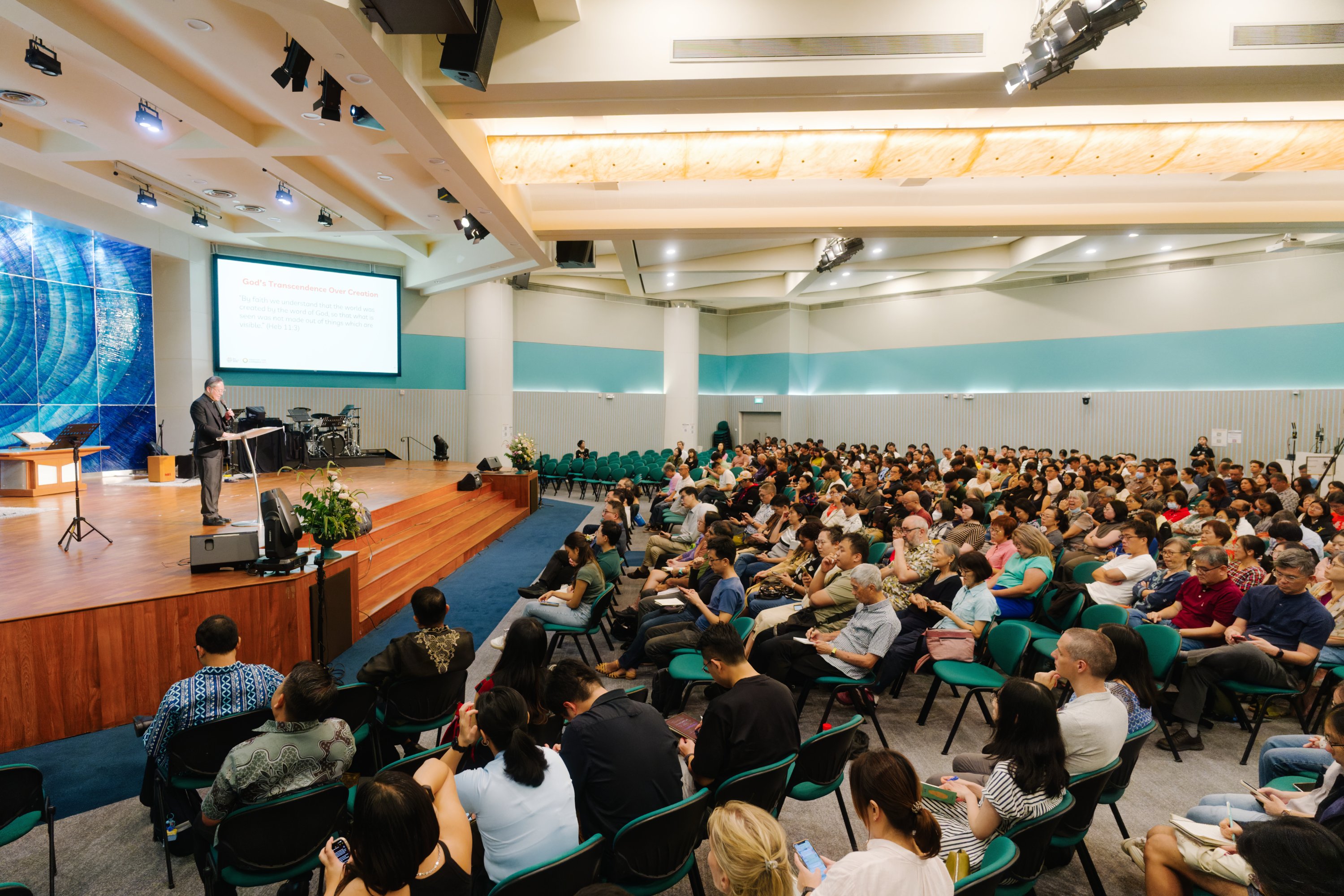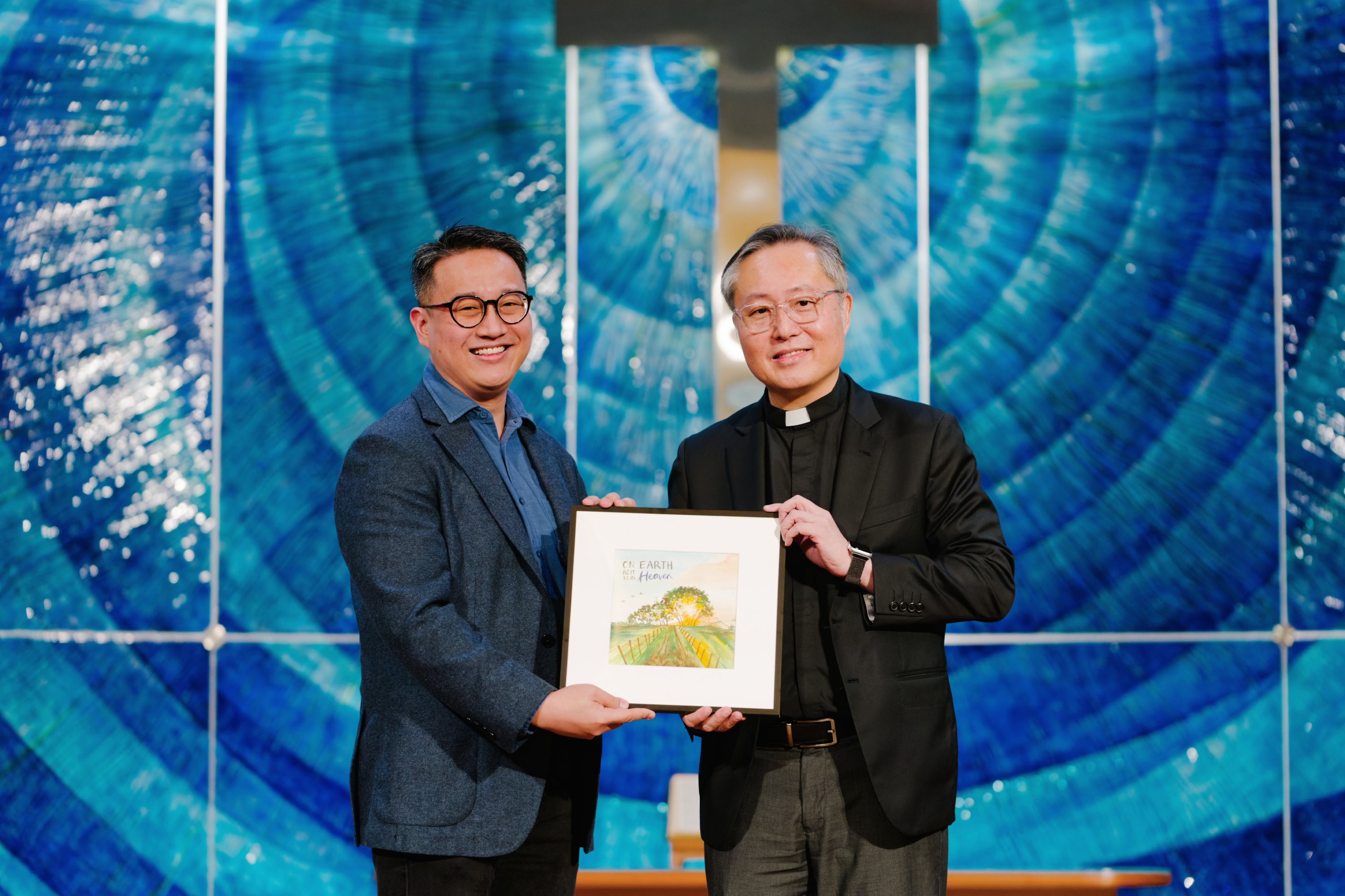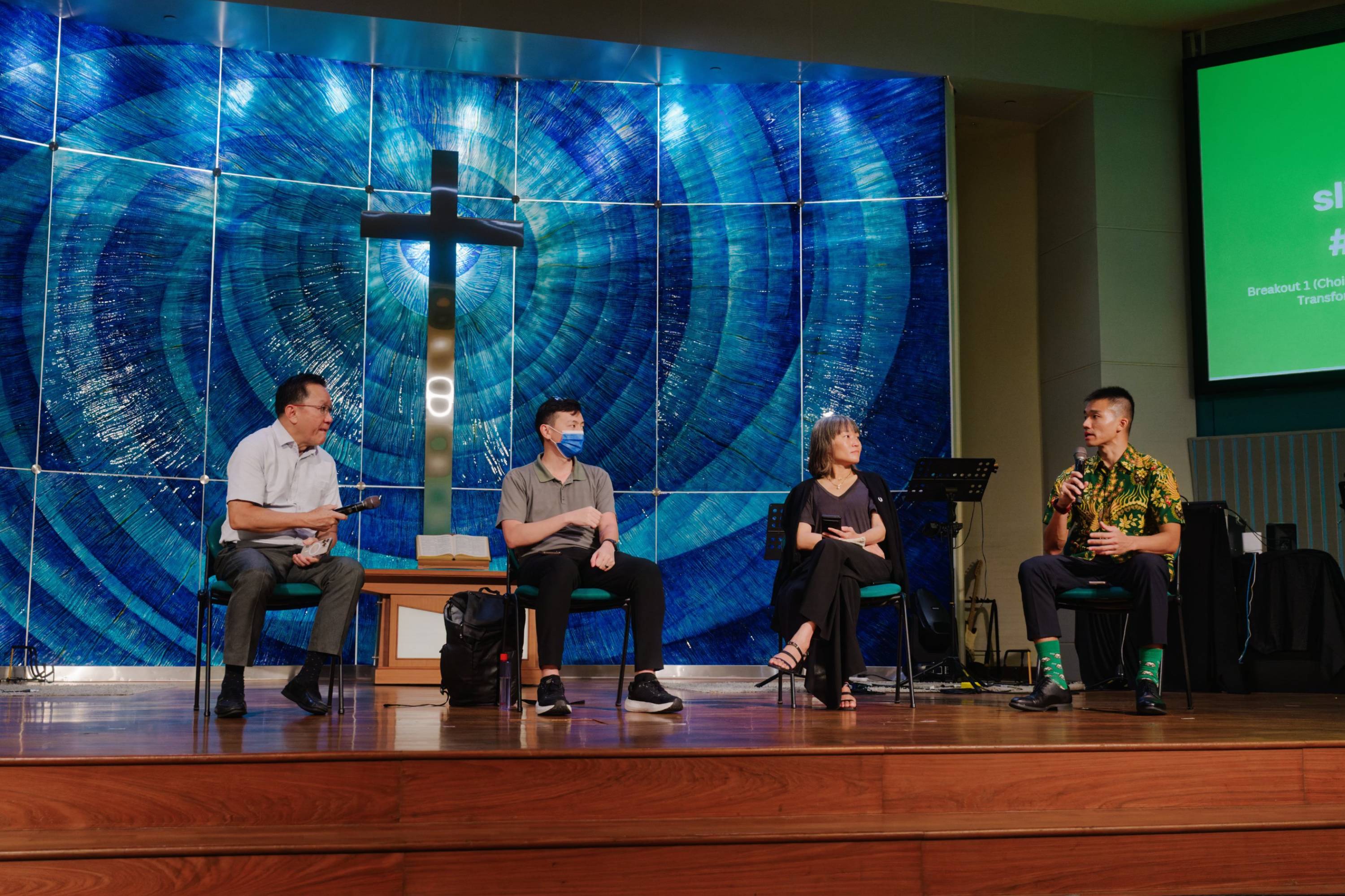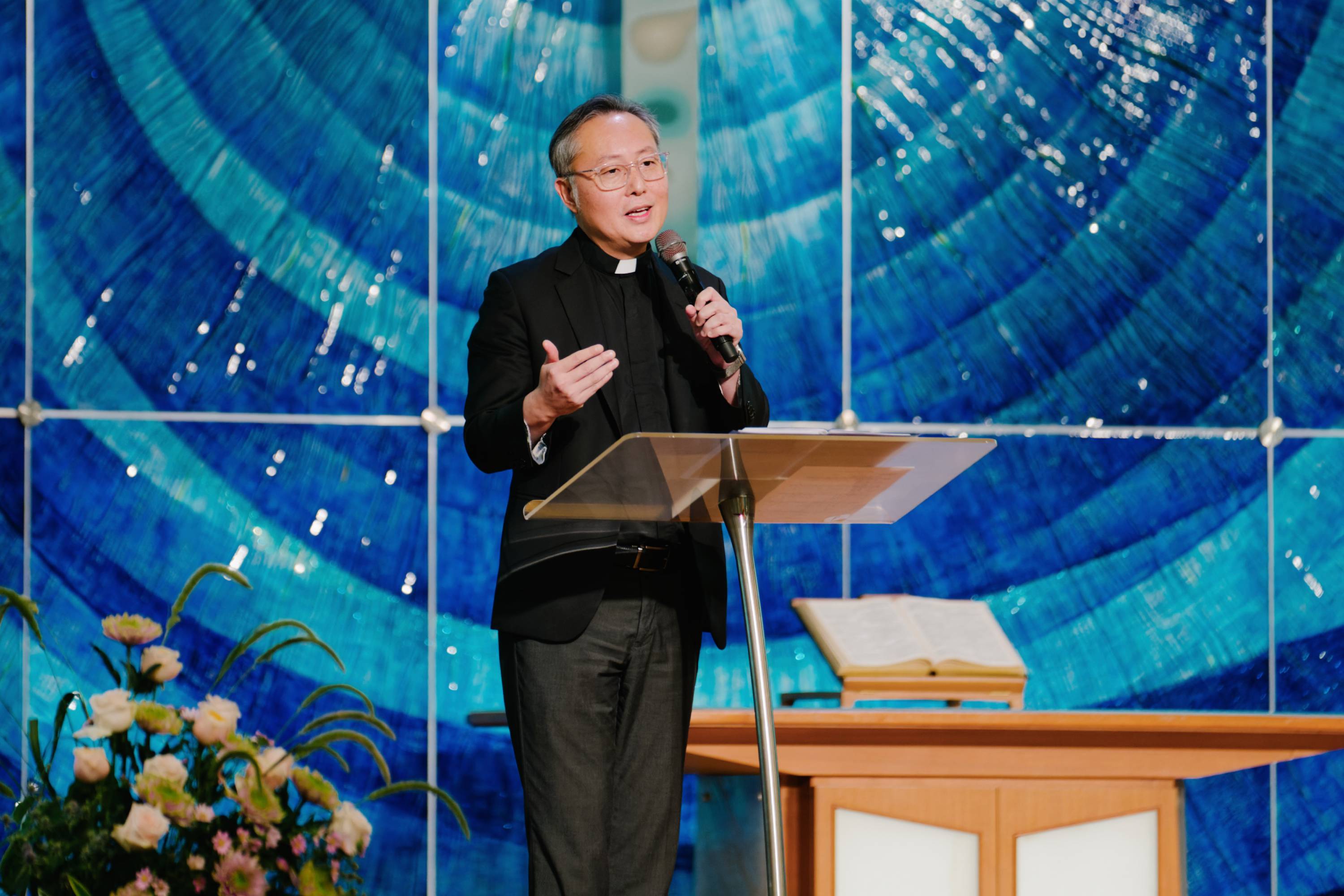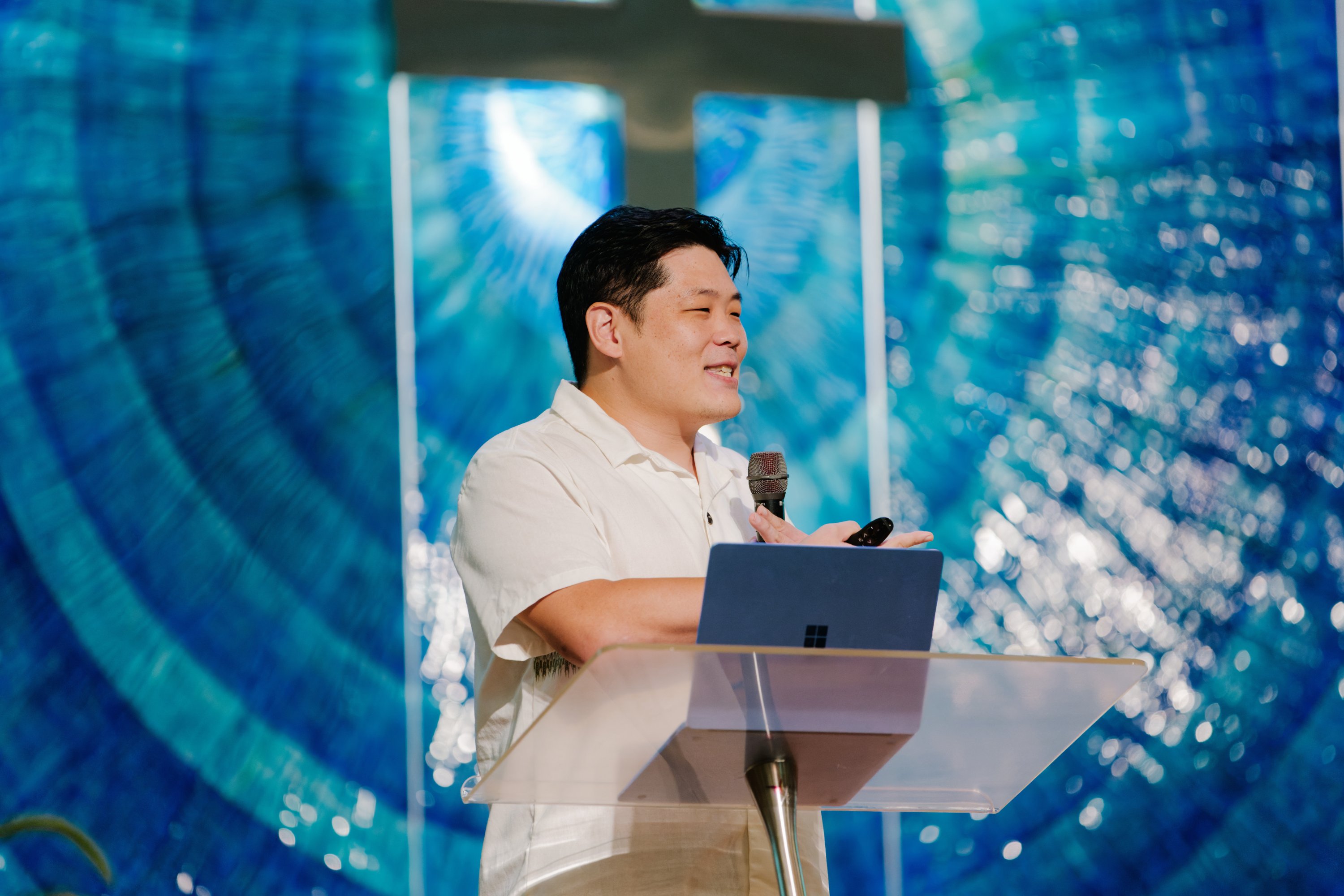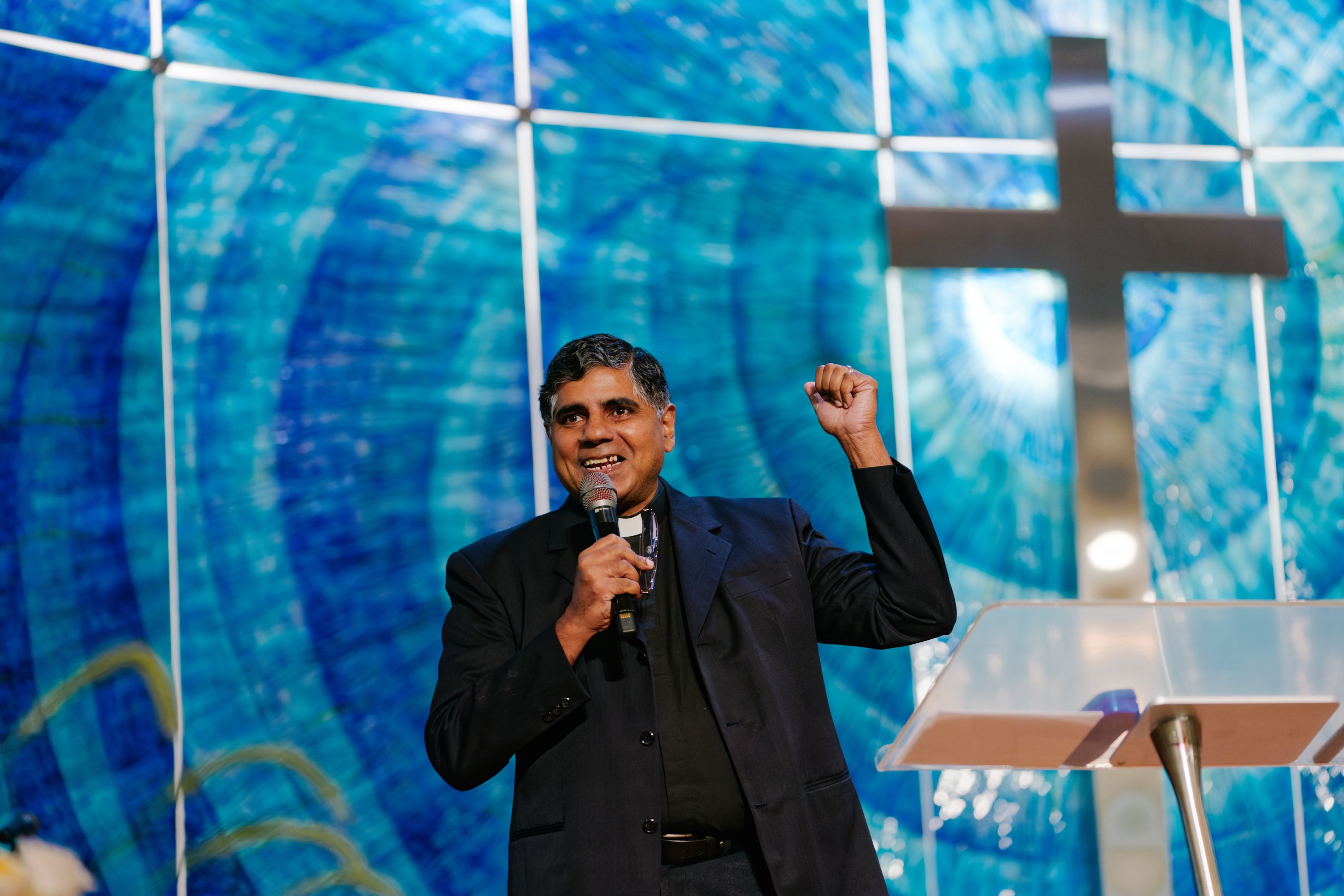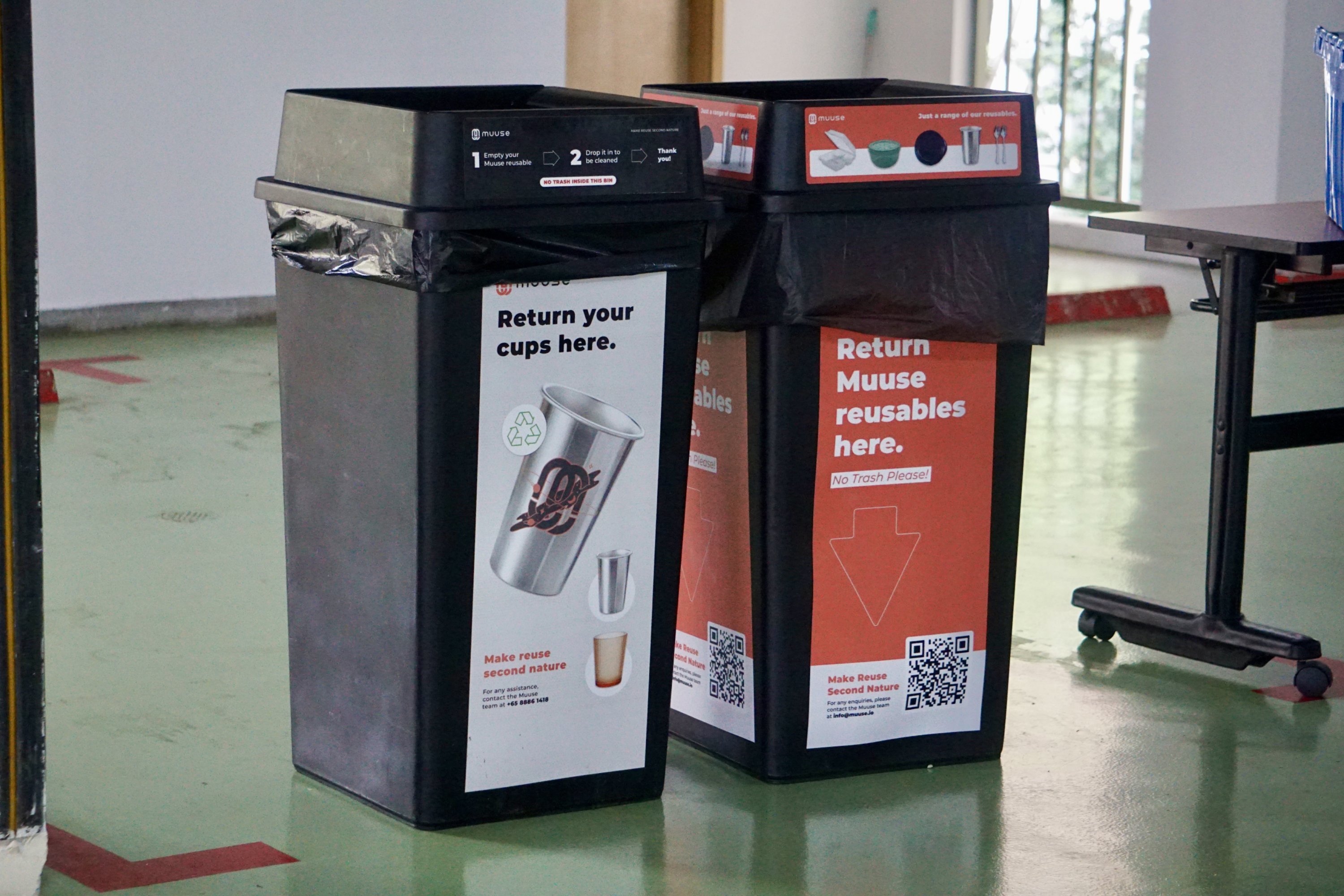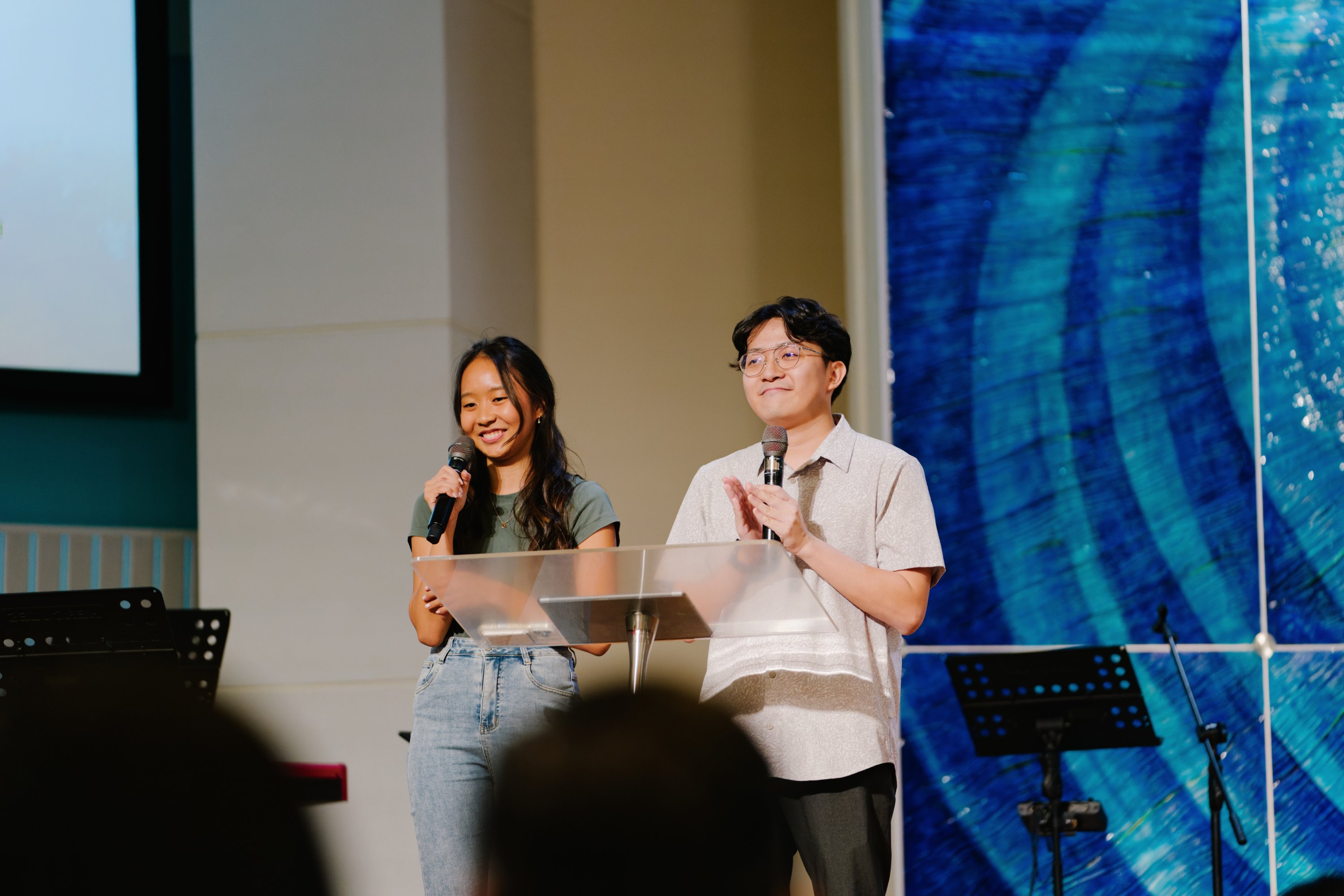On 12 and 13 September 2025, over 500 participants from 130 churches across 10 countries came together to attend the second Creation Care Conference jointly hosted by Faith Methodist Church and Queenstown Chinese Methodist Church. It was organised by Our Father’s World (OFW), an organisation that was founded in 2020 “to inspire and equip the Church to love and care for God’s creation”. Supported by 22 organisations including The Methodist Church in Singapore (MCS), it seeks to address how to acknowledge God’s restoration of creation and to integrate creation care as part of Christian life with the theme “On Earth As It Is In Heaven”.
MCS has reaffirmed its commitment to creation care through its 140th Anniversary initiatives this year, organising a creation care seminar “After Eden” and participating in NParks’ “OneMillionTrees” movement by planting 140 trees, both of which took place on 30 August 2025.
Theological foundations and cosmic perspective
Day 1 of the conference opened with a prayer by Bishop Philip Lim, who is also the President of the National Council of Churches of Singapore. The opening keynote was by Rev Dr Edwin Tay, Principal of Trinity Theological College and an ordained Methodist pastor, who offered theological reflections on developing a theology of creation care.
He reminded participants of how praying for God’s kingdom to come “on earth as it is in heaven” requires a cosmic perspective as it includes both human and non-human creation. After unpacking the relationship between God as Creator with creation, he examined the place of humanity in it. Dr Tay cautioned against both nature-worship and utilitarianism, emphasising that humans, as God’s image-bearers both stand in solidarity with creation and are called to care for it. He concluded with three essential takeaways:
- Consider creation
- Care for creation
- Celebrate God through creation
A need for cross-sector collaboration
Participants returned the next day, eager to learn about humanity’s role in creation care. The day began with an address by Mr Desmond Lee, Minister for Education, who acknowledged Singapore’s ongoing challenge of balancing development with conservation. He underscored the urgency of environmental stewardship in light of climate change and encouraged cross-sector collaboration—between governments, businesses, churches and communities.
The historical, social and theological roots of the creation care crisis
The morning plenary then commenced with a talk by Dr Justin Joon Lee, Associate Professor of Systematic and Historical Theology at Singapore Bible College. He discussed the historical, social and theological roots of the creation care crisis. He noted how events such as the Scientific Revolution and Industrial Revolution had shifted views of the world as divine to being seen as soulless due to increased rationalisation about the purpose of the world, how humans could further bend nature to its will, and the belief that man meant to conquer nature since it is a “gift” from God.
He then critiqued the theory of dispensationalism, which he argued had contributed to the negative perception of creation care due to its pessimistic view that all creation would eventually be destroyed. He challenged participants to shift their perception of creation from a market- and human-centred perspective to a Christ-centred one. He concluded by stressing the need to not repeat the mistakes of the past when understanding the Bible and theology, through awareness of our own flaws.
Stewardship in Singapore
The next session was a panel discussion centred around the theme of Creation Care in Our City: Our Mission of Stewardship in Singapore. The panel, consisting of
Dr Benjamin Grandey, a climate physicist, Architectural Guild, and Ms Olivia Choong, founder of The Tender Gardener blog, examined how interconnected Singapore is both locally and globally, and envisioned Singapore as a potential “Eden 2.0″—by having an ecologically integral community in communion with God’s creation. They examined the question of how to apply head knowledge about creation care—such as reducing unnecessary building projects—so that humans affirm their role in the earth’s ecosystem rather than cut themselves off from it. In the Q&A segment, they also addressed questions like how material sufficiency can be achieved in the context of Singapore, and how to change the mindset of Christians to be more creation care focused. Using the acronym CARE, they encouraged participants to:
- Connect with community
- Act on creation care
- Reconcile with creation
- Envision Eden
In the breakout sessions, participants explored practical applications of creation care, from transforming daily habits to linking faith, food and fellowship. Other tracks addressed how environmental justice could be a vessel of hope, especially in contexts of ecological degradation.
Creation care and global mission
Participants then regathered for the closing plenary delivered by Rev Manik Corea, National Director of the Singapore Centre for Global Missions, with his address focusing on how the eschaton marries creation care and global mission. He admitted that he had to relearn the scope and scale of God’s great Kingdom in this world as he opened his heart towards the idea of creation care. He discussed the issue of a “truncated gospel”, which tends to emphasise salvation while neglecting other aspects of the gospel, such as creation care. He said, “We are already new creations, so we are called to action to join God’s project of global transformation in the present.”
Finally, he discussed the eschaton as a final renewal, until which we have work to do through how we share the Good News and work in caring for communities and the environment. Combining both the eschaton with creation care and global missions creates the project to put all things right as God’s world order continues to be established.
Participants left the conference not only informed, but deeply moved, armed with both theological insight and practical tools to live out their roles as stewards of creation. As climate change and ecological degradation threaten the world, the message was clear: the Church must lead by example, living out the hope and restoration of the gospel in how we love our neighbour and care for God’s earth.
Are you inspired to get your church started in charting its own Creation Care discipleship journey after reading this article?
OFW’s newly launched RENEW programme aims to collaborate with churches in Singapore by guiding them in integrating creation care into both individual and church life.
Visit https://ourfathersworld.sg/renew/ to find out more.
Elliot Soh is a Sub-Editor of Methodist Message and worships at Barker Road Methodist Church. / Photos courtesy of Our Fathers World


